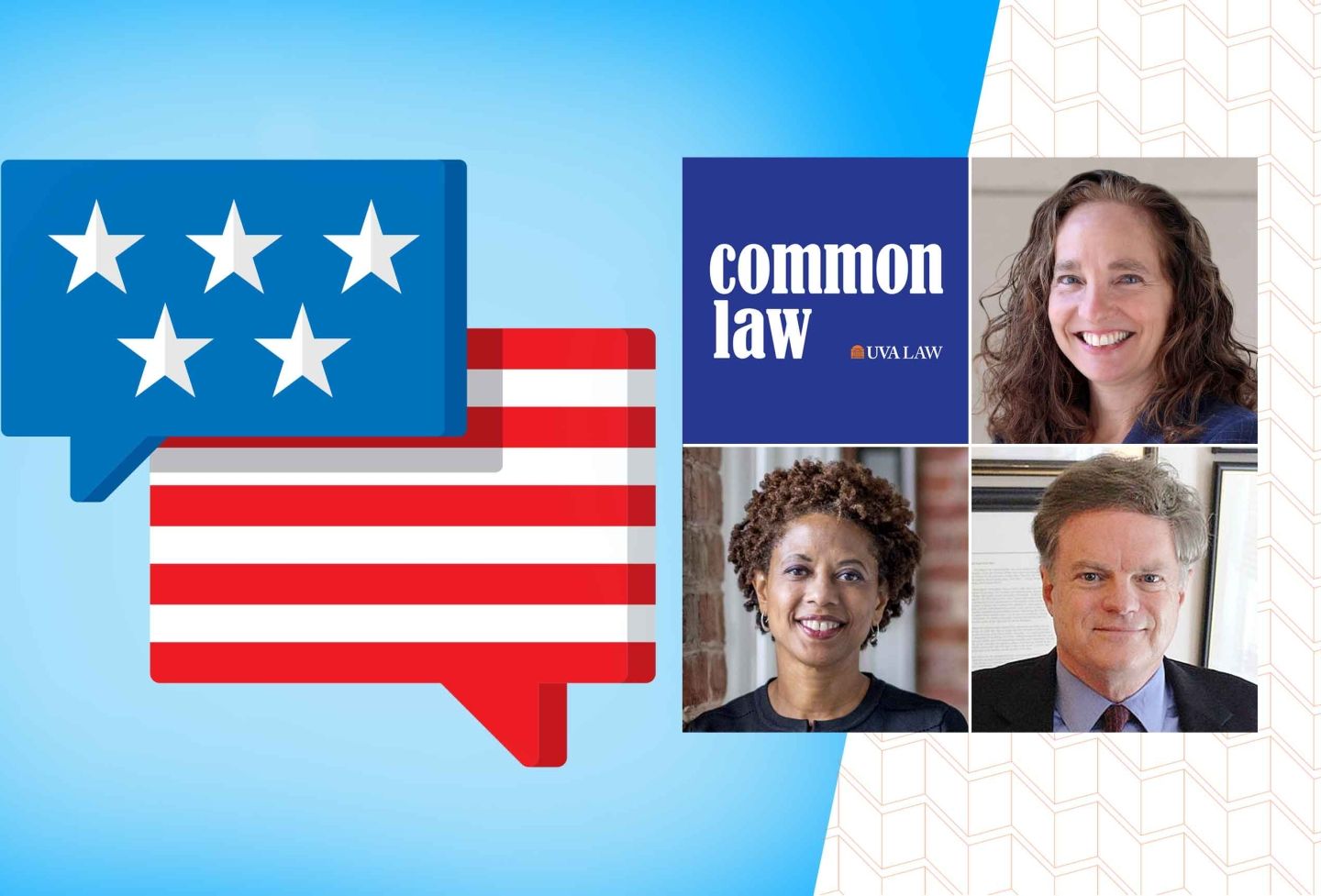M&A Market Heating Up, Say Alumni
Posted September 28, 2005
The specter of foreign labor and globalization hasn’t dimmed the prospects of a mergers and acquisitions market spurred by low financing rates and readily accessible money, alumni said at a Business Advisory Council session Sept. 23. Following Darden Dean Robert Bruner’s talk, several alumni discussed the benefits and drawbacks of the current M&A scene during a panel moderated by Professor Bob Sayler.
“It’s going to be a hot 10 years” for M&A, said Pete Ruegger ’74, chairman of the Executive Committee at law firm Simpson Thacher & Bartlett. “Globalization is going to cause U.S. companies to own pieces of companies in China and India.”
People should understand the benefits of mergers, said Roger Kimmel ’71, vice chairman of investment banking company Rothschild. He pointed to GlaxoSmithKline, a pharmaceutical giant that is buying a Canadian vaccine company for $1.4 billion. “The company that was acquired did not have the funds to roll out a flu vaccine,” Kimmel said, and the acquisition fits Glaxo’s worldwide strategy. “We will have much more access to the flu vaccine than we otherwise would have had.”
Kimmel debunked the idea that investment bankers always push deals, noting that good bankers will tell clients to walk away from bad transactions to keep customers over the long haul. Furthermore, the best ideas don’t usually come from bankers. “The executives know their sectors a lot better than the bankers,” he said.
Politics and public pressure sometimes override an examination of the deal itself. The proposed China National Offshore Oil Corporation (CNOOC) buyout of California oil company Unocal was widely condemned in the United States partly because of its national security implications (China has a large stake in CNOOC), but it would have allowed more Unocal managers to stay on than Chevron’s purchase of Unocal will, because Chevron has its own management already in place. “There are a lot of benefits to mergers, but the key is doing the right one,” Kimmel said. "More bankers than the public [perceives] will tell you what they really think.”
Marschall Smith ’73, general counsel for Brunswick Corporation, a high-end fitness and sports equipment retailer, said his company has walked away from potential deals because they don’t feel comfortable buying or merging with companies that have different areas of expertise.
Maligned deals such as the AOL-Time Warner merger looked worse than they turned out to be, said Ruegger, who represented AOL principals in the deal. After the merger and the stock market collapse, the company’s losses mirrored those of networking giant Cisco, for example. “There was a great deal of exuberance about the tech world,” Ruegger said. “Some of it was a deal that wasn’t well executed, but in fact a lot of [technology companies were] overvalued at that time.”
Globalization could be a boon for transactions across borders, said R. Hew Pate ’87, former Assistant Attorney General for Antitrust and a partner in Hunton & Williams’s litigation, intellectual property, and antitrust department. “I think the question in my line of work is whether that’s going to be allowed to happen,” he said, because more governments are getting into the antitrust business. The U.S. government approved the GE-Honeywell merger, for example, but the European Commission blocked it.
“The question was, are the Europeans using antitrust in a protectionist way? I think the answer is no," Pate said. "I do think if you look out into the future...there’s a real question in Asia, whether if they get into the antitrust business, [they may use it] in different ways that may not be based on competition but based on achieving goals that can’t be achieved in a trade context, for national advantage.”
A problem Smith’s company and other retailers face is that a Chinese company may be able to manufacture and sell a copy of a product for half the price without violating intellectual property laws. “It’s certainly gotten our attention that there’s suddenly this huge availability of products.”
Sayler asked whether foreign labor would make companies more bearish on M&A.
“I think that’s going to make us more acquisitive,” Smith responded, and his company will look for niches foreign labor won’t be able to affect.
The players in M&A have changed as much as the financing in recent years. Ruegger noted that private-equity firms have helped rationalize U.S. efficiency and have made headway in Europe, where Germans call them “locusts” because they eliminate jobs by streamlining companies. Over time they make businesses more competitive and yield good returns for their limited partners, Ruegger claimed.
Smith sounded some doubts about the value of private-equity firms, which he said tend to be price setters. They strip out company overhead, which is good, he said, but also strip out the muscle and research and development, making the business look good two to three years after the takeover, then sell it. Smith said over the long term such changes could be harmful to a company.
Kimmel added that five years ago it was rare for private equities to outbid strategic firms, but with the availability of more money in the last two years, they are outbidding strategic firms in 75 percent of the auctions. Years ago private-equity firms expected returns of 30 percent—now that figure is in the 20s, and some want only to lose less than the company lost before the takeover. As long as financing rates stay low, there’s going to be a lot of M&A activity, Kimmel said.
“There’s just too much non-strategic money,” Smith complained, noting that it was easy for private-equity firms to save money in the short term by getting rid of the company jet and similar excesses. “We’ve got a world where the private buyers are coming in for two to three years, and then getting out.”
Asked what the red flags to bad M&A deals were, panelists responded that the CEO being surrounded by “yes men” and a lack of management doomed deals.
While at the Justice Department, Pate said he was thanked by flight attendants for blocking a deal to merge troubled airlines United and USAir, a deal that would have eliminated competitive pressure on the East Coast routes. “We’re just asking different questions” about deals, Pate said.
Kimmel noted that company boards “are much more careful now” in approving deals, and Smith added that boards are more focused after Enron and Tyco’s implosions.
“Those three or four key board members are starting to push back and challenge,” Smith said.
Regulatory delays can be a real drawback for companies wishing to merge, Ruegger said. In the fall of 1996, MCI agreed to merge with British Telecom; shareholders approved the deal by the following summer, but the FCC hadn’t given its permission. News came out that MCI wanted to expand its infrastructure, which worried British Telecom shareholders, who decided they wanted to pay a lower price. In the meantime WorldCom cut in and bought MCI. “I would say that the regulatory process was too slow in that situation.”
Kimmel noted that mergers tend to make news when politicians sense the merger will be an issue with the public, such as with CNOOC. Fewer than 2 percent are challenged by the government, and less than 10 percent are closely examined. Pate noted that it was routine for a second request for information from the government to cost companies that comply $10 million.
Pate said mergers are no longer an issue of partisan controversy—the U.S. government reviews for efficiency and antitrust issues rather than whether job cuts are involved. “The policy of merger review is pretty quiet, and there’s a consensus about it.”
But CEO attitudes toward M&A have changed. “You can’t do a bad deal if you want to be around in a few years,” Smith said. “That swash-buckling risk-taking has been gone for a while.”
What separates risk from failure, Smith alleged, was “the willingness to make hard decisions and make them quickly.
“You’ve got to have senior management ready to pull triggers and ready to bring in the right person to fix it.”
Law & Business Panel Discusses Program’s Progress
The Business Advisory Council reconvened in the afternoon for a panel that focused on the progress of the Law & Business Program.
“It is really truly the only program that is curricular in nature,” said program director April Triantis. The program includes a four-credit, semester-long accounting and corporate finance course, enhanced core business law courses, and short courses taught chiefly by practicing alumni. In the past two years more than 500 students have taken the accounting/finance course that offers entry into advanced Law & Business courses and seminars. The School now boasts 14 short courses and newly hired faculty. “We’re excited to build upon the bricks that have been laid,” Triantis said.
Joe Gladden '67, former general counsel to The Coca-Cola Company, spoke about the program and teaching his short course, Governance and Control of the Multi-National Business. “Joint J.D.-M.B.A. programs have their place, but to me they have significant limitations,” he said. Students in such programs generally take business school and law school classes separately, and each school has its own perspective. “What this program reaches out to do in a number of very specific, well-defined areas, is to join the two, so that you’re bringing a legal perspective to a business issue.”
J.D. Taliaferro ’05, an associate with Kaye Scholer LLP, agreed that the Law & Business Program was a terrific compromise to getting a J.D.-M.B.A. “The classes that are set up with the Law & Business designation and the short courses do a terrific job of illustrating the need not just to know what the law is, but how you can apply it to your clients’ needs,” he said.
FULL BUSINESS ADVISORY COUNCIL COVERAGE
Founded in 1819, the University of Virginia School of Law is the second-oldest continuously operating law school in the nation. Consistently ranked among the top law schools, Virginia is a world-renowned training ground for distinguished lawyers and public servants, instilling in them a commitment to leadership, integrity and community service.


